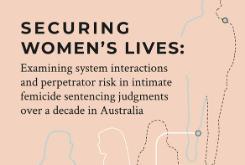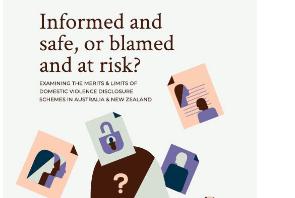Violence(s) against women and girls
Violence(s) against women and girls (VAWG) relates to forms of abuse such as physical violence, sexual violence, psychological abuse, and economic abuse.
The harm caused to victims and society by violence against women and girls (VAWG) in all its forms – including but not limited to harassment, stalking, rape, sexual assault, murder, honour-based abuse, coercive control – is immeasurable.
While men and boys also suffer from many of these forms of abuse, they disproportionately affect women. A woman is killed by a man every three days in the UK. Domestic abuse makes up 18 per cent of all recorded crime in England and Wales. In the year ending March 2022, there were 194,683 sexual offences, of which 70,330 were rape.
Research into violence(s) against women and girls is essential for developing effective strategies to prevent and address this widespread issue. By studying the causes, effects, and responses to violence, researchers contribute to creating safer environments and improving the quality of life for women around the world.
Researchers from the Department of Sociology, Social Policy, and Criminology have long-standing partnerships with Monash University and University of Central Lancashire which support research activities aimed at preventing violence against women and girls.
Securing women's lives
Funded by the Australian Research Council (ARC) Discovery Project, Professor Sandra Walklate partnered with researchers from Monash University to contribute new evidence to inform the further development of whole-of-systems preventive approaches to repeat violence and intimate femicide. Specifically, the project aimed to build evidence based on the following:
- Places where an intervention between the initial emergence of family violence and the fatal outcomes had occurred.
- What could potentially be known about those points of intervention.
- If/how the pathway from intervention to safety could be better supported.
This project builds current understandings of the potential points of intervention prior to the killing of women by their male intimate partners. In doing so, this project has contributed to building understanding of who perpetrates intimate femicide.
- Access the report: Securing Women's Lives: Examining system interactions and perpetrator risk in intimate femicide sentencing judgments over a decade in Australia.

Domestic Violence Disclosure Schemes
Research in partnership with University of Central Lancashire, examined ten years of Clare’s Law and the police handling of the Domestic Violence Disclosure Scheme (DVDS). Professor Sandra Walklate and Dr Charlotte Barlow (UCLAN) identified five key issues in the police delivery of DVDS, based on 10-years of evidence and data collection.
Recommendations made to the College of Policing encouraged a shift in the purpose of DVDS towards safeguarding rather than the current focus of ‘protection and empowerment’. By prioritising victim-survivors’ voices, the findings suggest this will increase engagement with the criminal justice process. Further recommendations were made to individual police forces, to also prioritise requests from the victim-survivor themselves, rather than a third party.
- Access the report: Domestic Violence Disclosure Schemes: Clare's Law 10 Years On (PDF, 145.3KB)
This research links to the wider Clare's Law Experiences project.

Further research - funded by the Australian Research Council (ARC) Discovery Project - in partnership with Monash University, conducted the first study in Australia and New Zealand to examine how effective domestic violence disclosure schemes (DVDS) are in enhancing safety of victim-survivors of intimate partner violence.
The report by Professor Sandra Walklate, Dr Ellen Reeves, and researchers from Monash University, uncovered significant gaps between the perceptions of practitioners and the experiences of individuals accessing Domestic Violence Disclosure Schemes (DVDS). The research, which focussed on the perspectives of victim-survivors, highlighted critical issues that challenge the efficiency of DVDS programmes in promoting safety and support.
Findings showed that applicants of the scheme reported shortcomings in support and safety planning opportunities. The study also revealed that for a number of victim-survivors, DVDS validated decisions already made, rather than influencing choices to leave abusive partners.